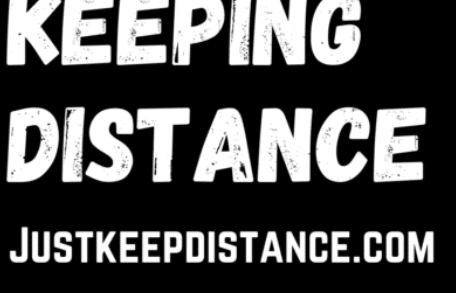
Keeping distance from family but Family support is crucial to mental recovery. Per recent studies, family involvement enhances treatment and the patient’s life quality. What’s more, relatives offer supervision during co-occurring disorder recovery. You’re less likely to relapse when your loved ones check on you. Relatives also offer encouragement when you feel vulnerable. But not all families are accommodating. Relatives may worsen your symptoms by condemning you for your illness or making thoughtless comments. That’s when keeping distance from family and mental health go hand in hand. Here’s what to do if your relatives are unreliable.
Be Kind to Yourself By Keeping Distance From Family Mental Health Goals
Self-criticism is easier than being your own cheerleader. But showing yourself kindness doesn’t make you lazy; it’s about taking a break from life’s pressures to recharge. Self-compassion takes different forms, for instance, forgiveness. Instead of torturing yourself, consider your mistakes learning opportunities. Remember, you made the most of your resources and knowledge at the time.
Another tip is to recognize your achievements. Apart from boosting confidence, small accomplishments make you happier and motivate you to do better. You can get a massage, buy yourself flowers, or go out for lunch. Moreover, acknowledge your positive qualities. Maybe you trust too easily, but you’re empathetic.
Ignore the Myths when Keeping Distance From Family
You don’t want myths worsening the pressure from unsupportive relatives. First off, suffering from a mental condition doesn’t mean you’re weak. On the contrary, strength is necessary to fight these disorders. Again, mental conditions aren’t something you wish away. Illnesses have different treatment plans. While some conditions require medication, others are curable by therapy.
Another misconception is mental health patients cannot keep jobs. These individuals are as just as valuable as other workers. Employment might even be important for keeping distance from family and mental health, seeing it offers a sense of purpose. Moreover, mental afflictions don’t make you violent. Patients are more likely to become crime victims, not perpetrators.
Acknowledge Your Relatives’ Struggles Keeping Distance From Family who may also be struggling
Your relatives’ lack of concern doesn’t mean they don’t want to help; they could be also be struggling with their mental health. Similarly, family members might dismiss your situation because they don’t understand it.
Even with your best interests at heart, your emotional pain may be too confusing for them to grasp. A better approach is seeking specific help. Humans cannot read minds; you may appear strong even if you’re crumbling inside. For example, you can ask your relatives to babysit your children while you’re out for dinner. You could also channel the negativity into productive activities like exercise.
Avoid Toxic Relatives a reason for many to start Keeping Distance From Family
It’s easy to think you cannot survive without toxic relatives. However, cutting these ties could enhance your mental wellbeing. There are several reasons why you should end toxic relationships. The first one is emotional abuse. The relationship is unhealthy if relatives are manipulative. Similarly, stay away from family members who continually criticize you. Furthermore, watch out for repetitive patterns, for example, relatives who are at their best behavior when they want favors.
You can sever toxic family ties by limiting contact. Reducing calls and visits reduces confrontation to accelerate recovery. Rather than focusing on other people, use these boundaries to heal. Another option is being neutral, especially if conversations always result in arguments. But don’t pretend things are fine. Inform your relatives when they offend you.
Keeping Distance From Family Doesn’t Mean You’re Alone
Apart from stealing your happiness, mental illnesses could push you to self-injury, drug addiction, and suicidal thoughts. It’s even worse when your loved ones ignore your pain. But all is not lost. A therapist unpacks your thoughts and feelings to help you cope. Another option is joining support groups. Although opening up is to strangers is difficult, support groups create bonds through shared experiences. Do you have other tips for keeping distance from family and mental health?



Thanks for this wonderful post Karani.
I myself have a large family and have learnt that they have their own ongoing troubles. Support groups are great daily our local health forum run a zoom meeting I get to know lot’s of people with simular problems and interests much better than annoying my family with my problems.
Hi Chris, Yes I think seeking help from family if you are struggling mentally is important. I have been there in the past and may very well be again in the future. Or it could be the other way round but then again it depends who your family is. Sometimes you are best left alone if they are only going to make things worse.
I think this article is very important for highlighting this so well done for sharing.